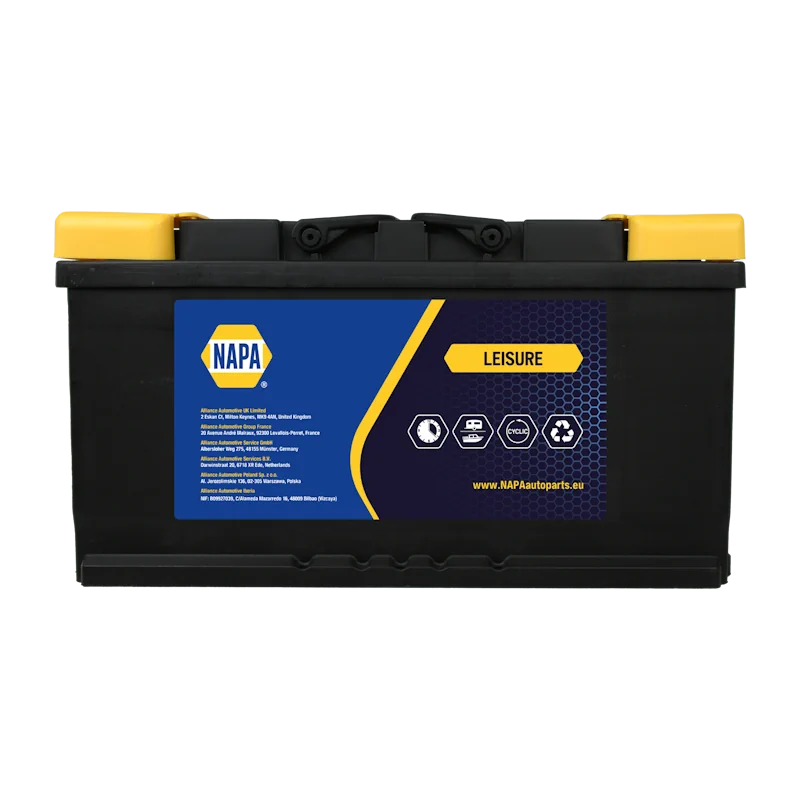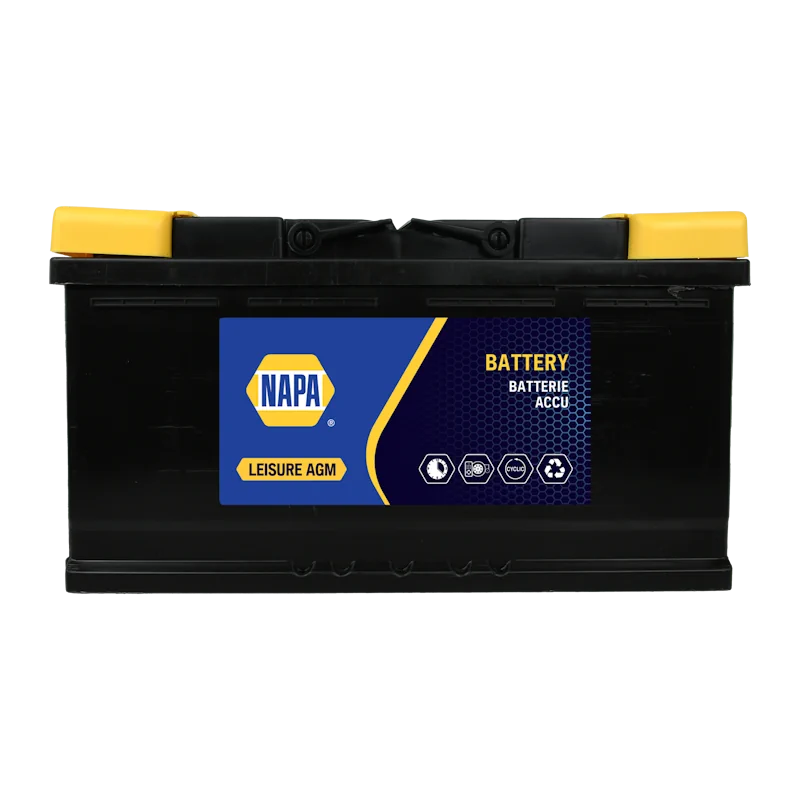Leisure Batteries at Kwik Fit
Wherever your caravan or motorhome may take you, Kwik Fit offers a leisure battery to suit you.
With a range of leisure and caravan batteries verified by the National Caravan Council, you can be sure that you’re purchasing a high quality product. These batteries have been comprehensively tested and categorised according to their capacity and purpose.
Leisure batteries and car batteries- what’s the difference?
A car battery is designed to give out a large amount of power in a short space of time (starting the car) and then being quickly recharged. A leisure battery on the other hand is designed to store power and release it over a much longer period of time. Undoubtedly you can use a car battery in your caravan but it is unlikely to work very well in the long term.Unless connected to a mains electricity supply, the 12V equipment in a caravan or motorhome relies on a leisure battery. Leisure battery technology differs from standard car battery technology as it is optimised to handle the loads and patterns of use that are common in caravans and motorhomes.
Which leisure battery should I choose?
When choosing your leisure battery, there are a few factors to take into consideration. The right battery for you depends on how often you use your caravan or motorhome and where you take it. At Kwik Fit, we stock Flooded and Absorbed Glass Mat (AGM) batteries.
Flooded Batteries
The advantages of wet flooded batteries is that although they are less expensive than other types of batteries, they are not overly sensitive to high charging voltages if they are kept topped up with de-ionised water. If you take your caravan on short weekend breaks, a wet flooded battery will be suitable.
Absorbed Glass Mat (AGM) Batteries
These batteries are typically more expensive than flooded batteries. The electrolyte is held between the plates absorbed in a fine boron-silicate mat. These batteries won’t leak acid, can withstand more careless treatment and are less sensitive to overcharging since they are designed to retain vented gases. AGM batteries can also stand for 30 days in a totally discharged state and still be recharged successfully. If you take extended breaks in your caravan or motorhome and regularly spend long periods of time ‘off grid’ away from an electrical hook up, consider an AGM leisure battery.
How to look after your leisure battery
The constant deep discharge and recharge cycles of a leisure battery shorten its life considerably. To prevent damage to your battery, it is important not to leave your battery discharged. If your battery is left discharged, a process called sulphation occurs. This process leads to sulphur crystals forming on your battery plates which can irreversibly damage your battery. Overcharging your battery can also damage the battery as it becomes too hot causing the plates to break down.









